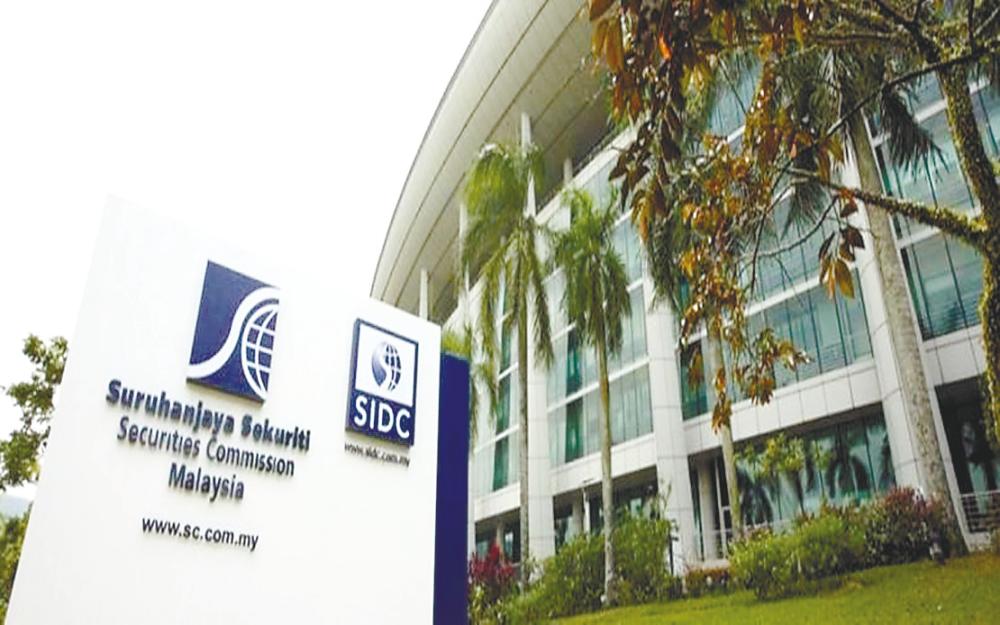PETALING JAYA: The Securities Commission Malaysia (SC) is bracing for a challenging and unprecedented situation on the domestic and global fronts arising from the Covid-19 pandemic, according to its chairman Datuk Syed Zaid Albar.
He cited the International Monetary Fund’s opinion that this will be the worst economic downturn since the Great Depression.
“Bank Negara Malaysia expects some normalisation to return in the second half with some recovery in 2021, but significant uncertainties remain,” Syed Zaid said at the launch of the SC’s 2019 annual report today.
He conceded that while the Malaysian capital market is affected, it has thus far remained orderly, given its ample liquidity and robust infrastructure.
In 2019, Malaysia’s capital market reported a 3% expansion to RM3.2 trillion from RM3.1 trillion in the previous year with, bonds and sukuk outstanding accounting for RM1.5 trillion and equity market capitalisation making up the remaining RM1.7 trillion.
The capital market continued to channel financing to the Malaysian economy in 2019, with RM139.4 billion raised through equity, bonds and sukuk, versus RM114.6 billion in 2018. The number of initial public offerings on the Main, ACE and LEAP markets increased to 30, despite total equity issuance falling to RM6.6 billion.
Alternative fundraising avenues continued to gain traction, especially in ECF (equity crowdfunding) and P2P (peer-to-peer) financing, with total funds raised more than doubled to RM443.8 million (2018: RM195.9 million).
A total of RM132.8 billion was raised in the corporate bond and sukuk market compared with RM105.4 billion in 2018, with issuances mainly in utilities and financial services. Sukuk made up 77.1% of total bond issuances in 2019,
Syed Zaid noted that while there has been some volatility in the domestic bond market, it continues to perform better than its emerging peers, supported by deep domestic liquidity funds of the fund management industry.
Last year, the fund management industry saw total assets under management (AUM) rising to RM823.2 billion in 2019, from RM743.6 billion a year before, driven by valuation gains in small and mid-cap equities as well as higher net injections from dividend reinvestment.
Meanwhile, the annual report noted that unit trust funds continues to be the largest component of the Malaysian collective investment schemes industry with a total net asset value of RM482.09 billion as at Dec 31, 2019, a 13.12% increase from RM426.18 billion as at Dec 31, 2018.
With regard to the impact of the market uncertainty on the unit trust segment, SC deputy CEO Datuk Zainal Izlan Zainal Abidin said it has remained relatively stable despite the challenging environment.
“Based on preliminary data, the overall net asset value of local unit trust funds has fallen 4-5% since the end of February, but a significant portion of this is due to market movements, and lower share prices which have hit equity funds,” he said.
Zainal Izlan pointed out although there was a higher level of net redemption in the first half of March, which coincided with the start of the movement control order, the redemption has since moderated.
Some of the redemptions from equity funds involved switching to other funds, and some of the redemption proceeds have remained invested in the industry rather than being taken out for cash.
“Hence, the liquidity position of the unit trust fund is comfortably supported by the fund managers’ liquidity risk management policies and measures,” he said.
Looking ahead, Zainal Izlan said the disruption from the pandemic will affect fundraising activities, which in turn, has affected the SC’s ability to project the size of fundraising activities in the current environment.
“However, based on the industry feedback, we do expect issuances of corporate bonds and sukuk for this year to be in the region of RM90 billion to RM100 billion,” he added.
Zainal Izlan pointed out that over the past three years, sukuk accounted for an average of about 70% of corporate issuances and there is no reason to depart from this norm this year as there is a large pool of demand for syariah-compliant investment products.










